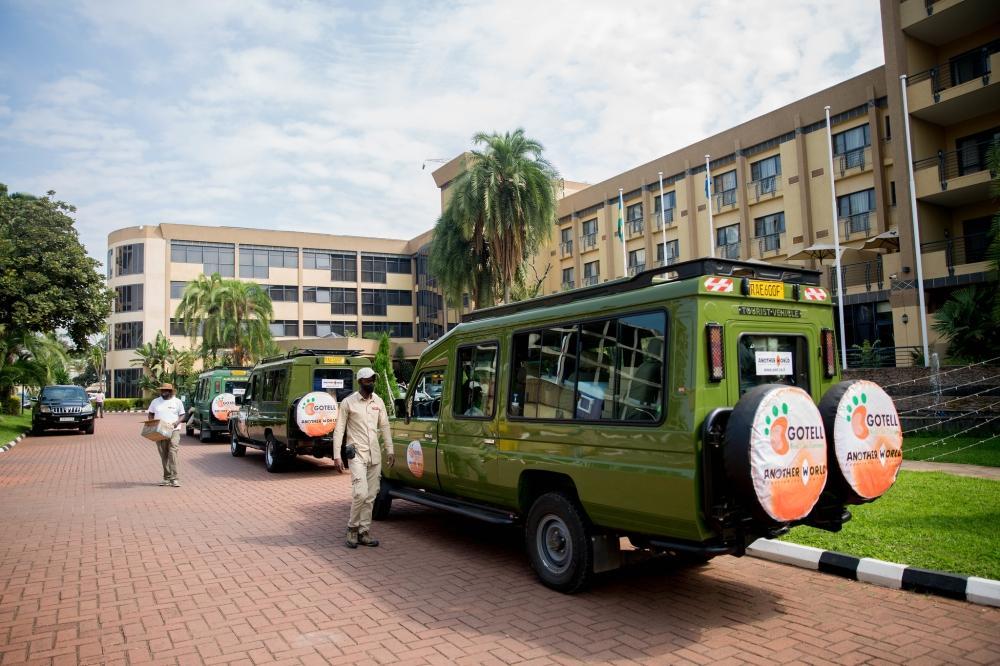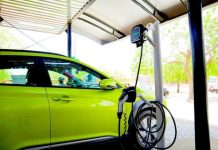Africa-Press – Rwanda. All imported tourist vehicles whose value exceed $60,000 (approx. Rwf85 million), each, are exempt from excise and import duties under Rwanda’s tax policy.
According to Rwanda’s excise duty law, vehicles exempted from excise duty include those assembled in Rwanda, tourist vehicles, lorries, and single-cabin pickups designed for goods transport, refrigerated vehicles, ambulances, and those designed for people with disabilities.
As per the 2023 law, excise duty [on imported vehicles] ranges from 5 per cent to 15 per cent, depending on engine capacity – with higher taxes imposed on vehicles with larger engines.
The law states that the tourism vehicles provided for by the law are subject to requirements provided for by the customs law.
The New Times understands that this exemption currently applies to diesel- or petrol-powered vehicles, as electric and hybrid vehicles are not subject to excise duty.
However, under a new bill currently being considered by Parliament, the government aims to introduce excise duty on hybrid vehicles as it seeks to encourage the use of pure electric cars in line with promoting green transportation.
Although the government has proposed amendments to the excise duty law, no changes are expected regarding the exemption for currently eligible tourist vehicles.
Rationale for exemption
On March 25, the Chamber of Deputies’ Committee on State Budget and Patrimony questioned why expensive tourist vehicles, which are typically high-end, are exempt from tax. It was during a session in which the committee was scrutinising some bills related to new tax reforms, including the bill on excise duty.
In response, Godfrey Kabera, the Minister of State for National Treasury, explained that the goal of exempting luxury tourist vehicles valued above $60,000 is to stimulate the growth of the country’s tourism sector, particularly luxury tourism, where access to such vehicles is often limited due to their high costs.
This policy is aimed at positioning Rwanda as a hub for high-end tourism, he indicated.
“We are not targeting mass tourism, but rather high-end tourism where with fewer people [wealthy tourists] who contribute more financially to the economy,” he stated, noting that the country is promoting this niche tourism segment.
Tourism investment as prerequisite
Ronald Niwenshuti, the Commissioner General of Rwanda Revenue Authority (RRA), said that the tax exemption on tourist vehicles above $60,000 is a beneficial policy for the country.
This exemption is not given indiscriminately, he said, indicating that it is only available to investors who are involved in the tourism sector such as an investor planning to build a hotel in Rubavu (Western Province) or to run a tourism-related business.
He indicated that approval of such tourism investments by Rwanda Development Board (RDB) is required.
“It is RDB that formally communicates with us to confirm the investor’s eligibility,” he said, pointing out that a regular person purchasing a $100,000 car [which would be eligible considering the vehicle value threshold] does not qualify for the exemption.
“The exemption is tied directly to tourism-related investments,” he said.
In the current fiscal year, which ends on June 30, imported vehicles are required to pay the East African Community (EAC) Common External Tariff import duty of 25%, along with other applicable taxes up to the Cost, Insurance, and Freight (CIF) value of $60,000. However, vehicles valued above $60,000 are exempt from these taxes.
According to the Ministry of Finance and Economic Planning, the extension of such tax incentive is designed to increase the stock of high-end or luxury tourist vehicles, aligning with Rwanda’s strategy to host high-profile events and boost its tourism sector.
As electric and hybrid vehicles continue to benefit from import duty exemptions, the incentive for tourist vehicles specifically applies to those running on diesel or petrol.
Under the second phase of the National Strategy for Transformation (NST2), Rwanda targets to increase its tourism revenues from $620 million in 2023 to $1.1 billion by 2029.
Source: The New Times
For More News And Analysis About Rwanda Follow Africa-Press






